Filter by

The Governance of Insurance Undertakings = Corporate Law and Insurance Regula…
This open access volume of the AIDA Europe Research Series on Insurance Law and Regulation brings together contributions from authors with different legal cultures. It aims to identify the legal issues that arise from the intersection of two disciplines: insurance law and corporate/company law. These legal issues are examined mainly from the perspective of European Union (EU) law. However, ther…
- Edition
- 1
- ISBN/ISSN
- 9783030858179
- Collation
- X, 360 hlm ill; lamp
- Series Title
- 6
- Call Number
- -

Chairperson Succession :Competences, Moderators, and Disclosure
This open access book empirically analyses the competences (input), moderators (process), and disclosure (output) of board chair succession practices for publicly listed organisations in Switzerland. As primus inter pares (Latin for first among equals), the chair of the board of directors holds a unique organisational position. For fulfilling the non-transferable duties pursuant to Article 716a…
- Edition
- 1
- ISBN/ISSN
- 978-3-658-40817-6
- Collation
- XXI, 261
- Series Title
- -
- Call Number
- -
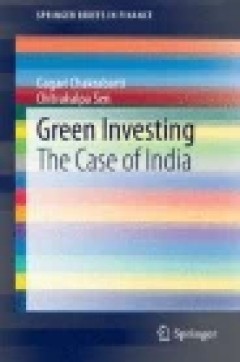
Green Investing the Case of India
This book seeks to answer the essential question of the investment-worthiness of green instruments. It is evident that investing in green and energy-efficient firms will be the most profitable choice for wise investors in the years to come. The reconciliation of the social choice for green technology and investors’ choice for gray technology will be automatically achieved once green firms bec…
- Edition
- -
- ISBN/ISSN
- 978-81-322-2025-1
- Collation
- IX, 102
- Series Title
- -
- Call Number
- 330 CHA g
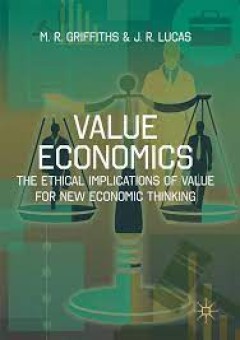
Value Economics the Ethical Implications of Value for New Economic Thinking
The last financial crisis revealed a gap between business practice and ethics. In Value Economics, Griffiths and Lucas examine some of the reasons for this ethical gap and discuss the resulting loss of confidence in the financial system. One of the reasons has been hazy or inadequate thinking about how we value economic enterprises. With the close link between the creation of value and business…
- Edition
- -
- ISBN/ISSN
- 978-1-137-54187-1
- Collation
- -
- Series Title
- -
- Call Number
- -
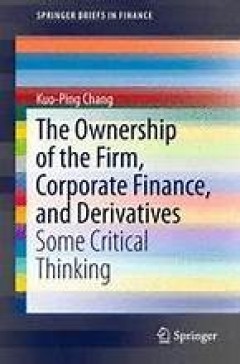
The Ownership of the Firm, Corporate Finance, and Derivatives
This book clarifies several ambiguous arguments and claims in finance and the theory of the firm. It also serves as a bridge between derivatives, corporate finance and the theory of the firm. In addition to mathematical derivations and theories, the book also uses anecdotes and numerical examples to explain some unconventional concepts. The main arguments of the book are: (1) the ownership of t…
- Edition
- 1
- ISBN/ISSN
- 978-981-287-353-8
- Collation
- XII, 76, 11 b/w illustrations
- Series Title
- SpringerBriefs in Finance
- Call Number
- XII, 76, 11 b/w illust
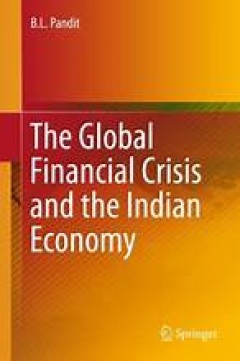
The Global Financial Crisis and the Indian Economy
After tracing the causes of the global financial crisis, the book focuses on two fundamental systemic issues connected with its manifestation: financial-sector regulation and the problem of the dollar-centric international monetary system, both of which have been widely cited among the important factors leading to the 2008 financial crisis. The important analytical question of monetary policy t…
- Edition
- 1
- ISBN/ISSN
- 978-81-322-2395-5
- Collation
- XI, 142, 31 b/w illustrations
- Series Title
- -
- Call Number
- -
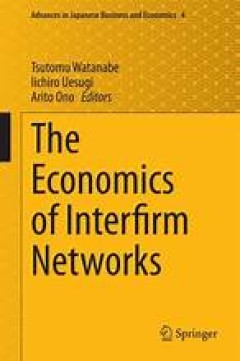
The Economics of Interfirm Networks
This book is one of the first comprehensive works to fill the knowledge gap resulting from the limited number of empirical studies on interfirm networks. The in-depth empirical research presented here is based on a massive transaction relationship database of approximately 400,000 Japanese firms. This volume, unlike others, focuses on the role of interfirm networks in three different fields: (1…
- Edition
- 1
- ISBN/ISSN
- 978-4-431-55390-8
- Collation
- X, 263, 31 b/w illustrations, 14 illustrations in colour
- Series Title
- Advances in Japanese Business and Economics
- Call Number
- -
 Computer Science, Information & General Works
Computer Science, Information & General Works  Philosophy & Psychology
Philosophy & Psychology  Religion
Religion  Social Sciences
Social Sciences  Language
Language  Pure Science
Pure Science  Applied Sciences
Applied Sciences  Art & Recreation
Art & Recreation  Literature
Literature  History & Geography
History & Geography